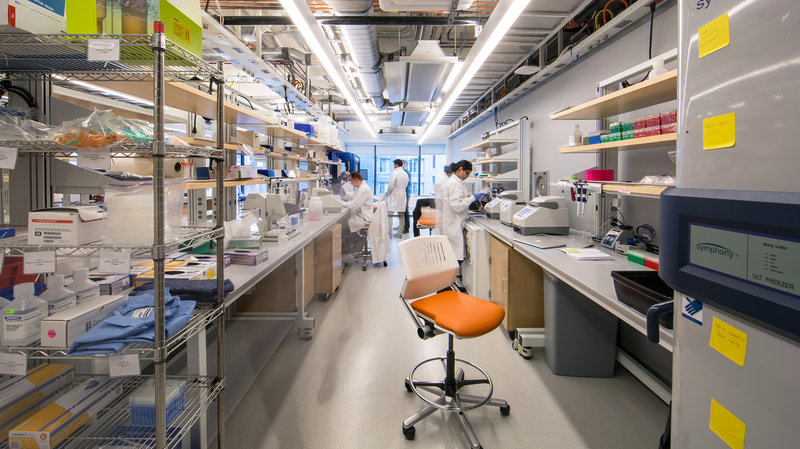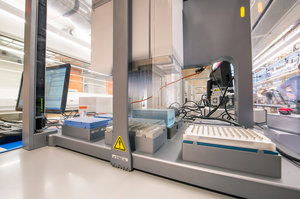Medical device and MedTech insights, news, tips and more
Why Doctors Want A Computerized Care Assistant For Cancer Patients
August 19, 2016

A computer may soon be able to offer highly personalized treatment suggestions for cancer patients based on the specifics of their cases and the full sweep of the most relevant scientific research.
IBM and the New York Genome Center, a consortium of medical research institutions in New York City, are collaborating on a project to speed up cancer diagnoses and treatment.
The work, which got underway in 2013, is exploring the use of computers to help analyze a wide range of genetic information and the scientific literature with the goal of quickly formulating precise treatment plans for cancer patients.
The line of research is being orchestrated by Robert Darnell, the founding director of the New York Genome Center and a neuro-oncologist at Rockefeller University. A project on brain tumors aims to bring cancer experts in New York City to bear on treatment plans that take advantage of the very latest scientific evidence.
An essential assistant on Darnell’s team is supercomputer IBM Watson, which helps by comparing the genetic differences between healthy cells and tumor cells in patients, as well as fetching the newest treatment ideas from medical journals.
Watson wasn’t always part of Darnell’s lineup. When he started the project, he relied on the collective brainpower of a bunch of medical researchers in New York City. Fifteen of them, including Darnell, spent three weeks evaluating the case of the first patient of the project. But, he says, “by the time we got through with this patient, the patient died.”
Speed matters, given how fast cancer can spread. Information overload is a particular challenge.
“Cancer is not giving you the luxury of time,” says Ajay Royyuru, the director of IBM’s Healthcare and Life Sciences Research. And, he adds, there are “more papers published in each year than cancer researchers can read and remember.”

In contrast, IBM’s supercomputer Watson, famous for defeating former champions in Jeopardy! in 2011, is able to read “800 million pages per second … from medical literature to patient records to doctors’ notes,” according to Christine Douglass at IBM Watson Health.
Upon learning about Watson’s abilities, Darnell approached IBM. By 2014, a human-computer coalition to fight cancer was born.
“Compare what the genetics in the healthy cell looks like to what the genetics in the cancer cell looks like, you get the list of differences,” says Steve Harvey, vice president of Watson Health at IBM. “Watson will first try to figure out what are the differences that could be causing cancer. For each of those potential genetic issues, it will go through databases and literature to find” known treatment options, he says.
Read Full Article – Source: Why Doctors Want A Computerized Assistant For Cancer Care : Shots – Health News : NPR
Author – MARK H. KIM
Photo Credit – New York Genome Center
